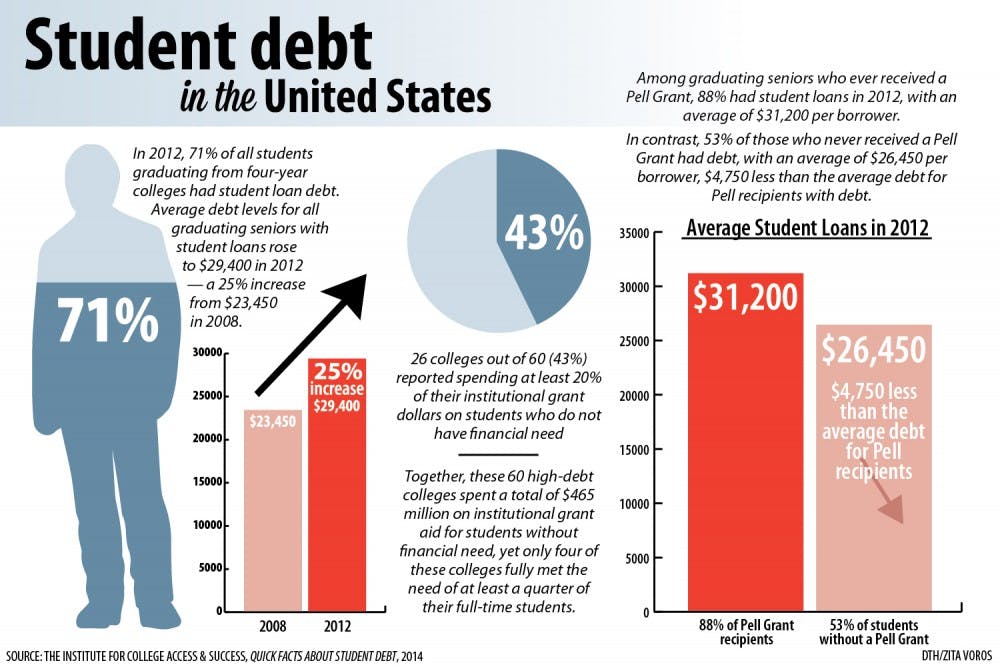A new study by the Urban Institute found affluent households owe the most student debt. However, they may be better able to repay that debt than those with smaller amounts of student loans.
At the same time, students of all income levels suffer from the negative mental impact of student debt.
Victoria Lee, one of the researchers who performed the analysis, said almost 50 percent of outstanding debt is held by households that fall into the highest income quartile. She said this is probably because students from higher income households are more likely to have attended more years of school, meaning they accumulated more debt.
“Even though former students in the lowest quartile have a low share of debt, there are students who are borrowing, and they’re borrowing small amounts of debt,” Lee said. “One of the big problems that we’ve seen is that a lot of students will borrow relatively small amounts, but they won’t complete school.”
Colleen Campbell, associate director of postsecondary education at the Center for American Progress, said students who accumulate small amounts of debt typically drop out and later default on their loans. As a result, dropping out is highly associated with defaulting.
“When students default, their loans get transferred to collection agencies. Their wages and their tax returns can be garnished, and they’re basically not eligible to receive any more federal financial aid,” Campbell said. “In some states, they can’t get a professional license. There are credit implications. There are a lot of really negative repercussions to defaulting.”
Students who enter college with a child are likely to default, as are students of color and low income students, Campbell said. About 30 percent of defaulters are African American and 18 percent are Latinx.
Mental health impacts of student debt have not been widely studied, but a University of South Carolina study found students’ psychological health may suffer as a result.
“Our data indicate that student loans are associated with poorer psychological functioning,” the study said.




